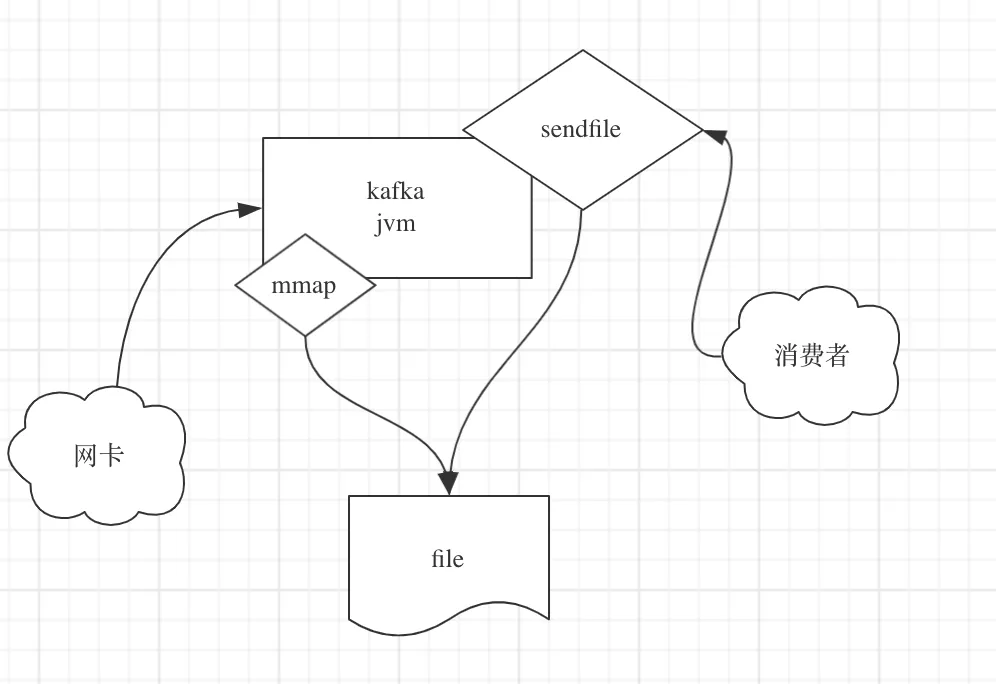01-evolution_IO
- Redis 远程数据字典服务器(REmote DIctionary Server)
1. Concept
1. 磁盘
- 寻址:ms
- 带宽:G/M
2. 内存
- 寻址:ns
- 带宽:很大
- 内存是线性地址空间
秒 > 毫秒 > 微秒 > 纳秒。磁盘比内存在寻址上慢了10W倍
3. I/O buffer
- 硬盘是磁道、扇区。一扇区 <512Byte> ,索引成本变大
- 4K对齐。操作系统,无论你读多少,都是最少4k从磁盘拿。索引体量变小
2. Evolution
1. DB + index
关系型数据库
- 建表:必须给出schema
- 类型:字节宽度
- 存:倾向于行级存储(即使字段为空,也预留出空间)
数据库,表很大,性能下降?(如果表有索引)
- 增、删、改,变慢
- 查询速度呢?
- 1个或少量查询依然很快
- 并发大受硬盘带宽影响速度(多个date_page都要同时写入内存)
2. 缓存DB
- SAP,HANA ,内存级别的关系型数据库,2T。太贵
- 数据在磁盘和内存体积不一样。在内存中的数据比在硬盘中的体积小
3. DB + cache
2个基础设施
- 冯诺依曼体系的硬件
- 以太网,tcp/ip的网络(不稳定,整合多个技术,一定带来数据一致性、双写等问题)
左边,太慢。右边太贵。出现了折中方案缓存memcached、redis
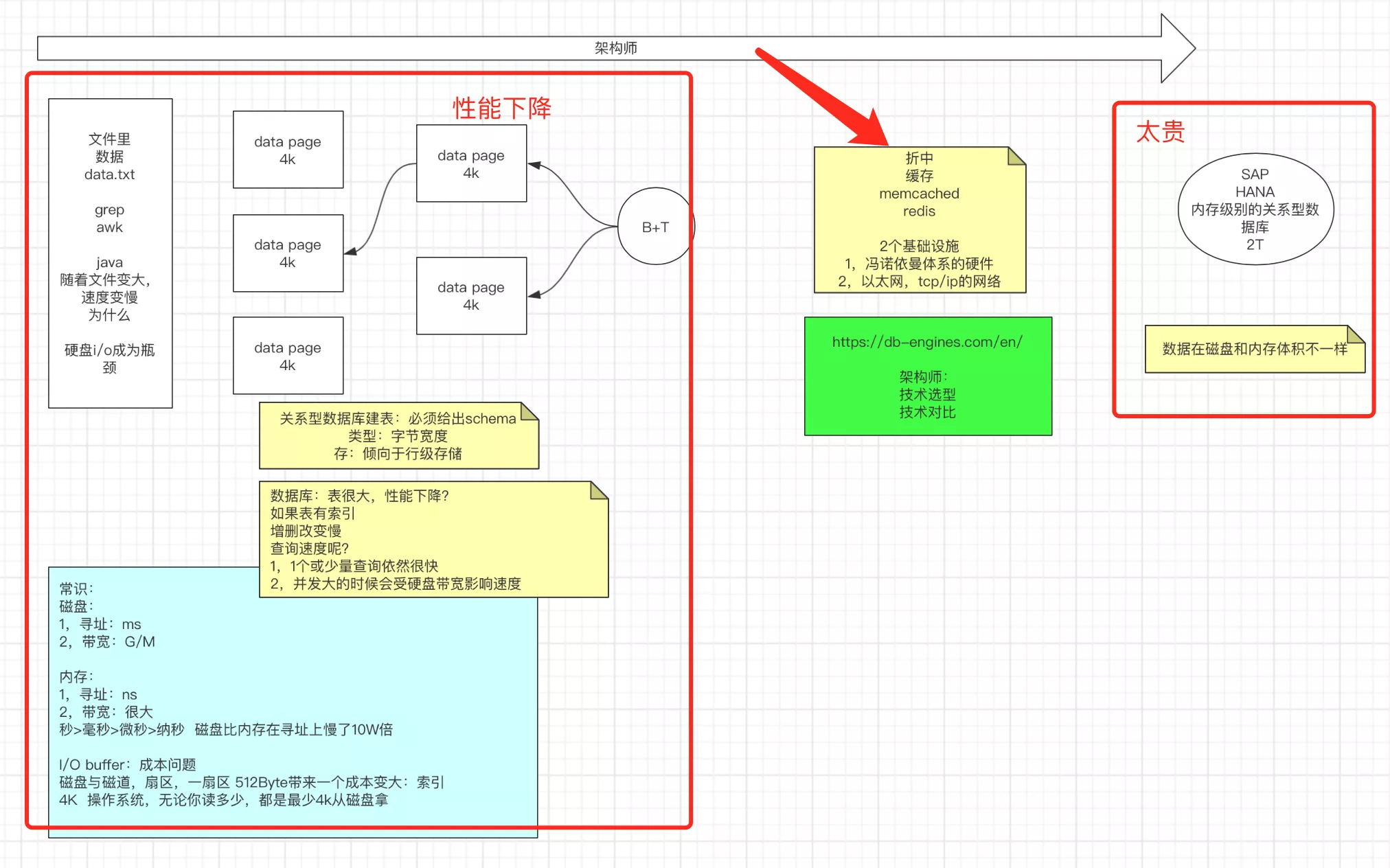
3. DB-ENGINES
架构师
- 技术选型
- 技术对比
1. DB-Engines Ranking
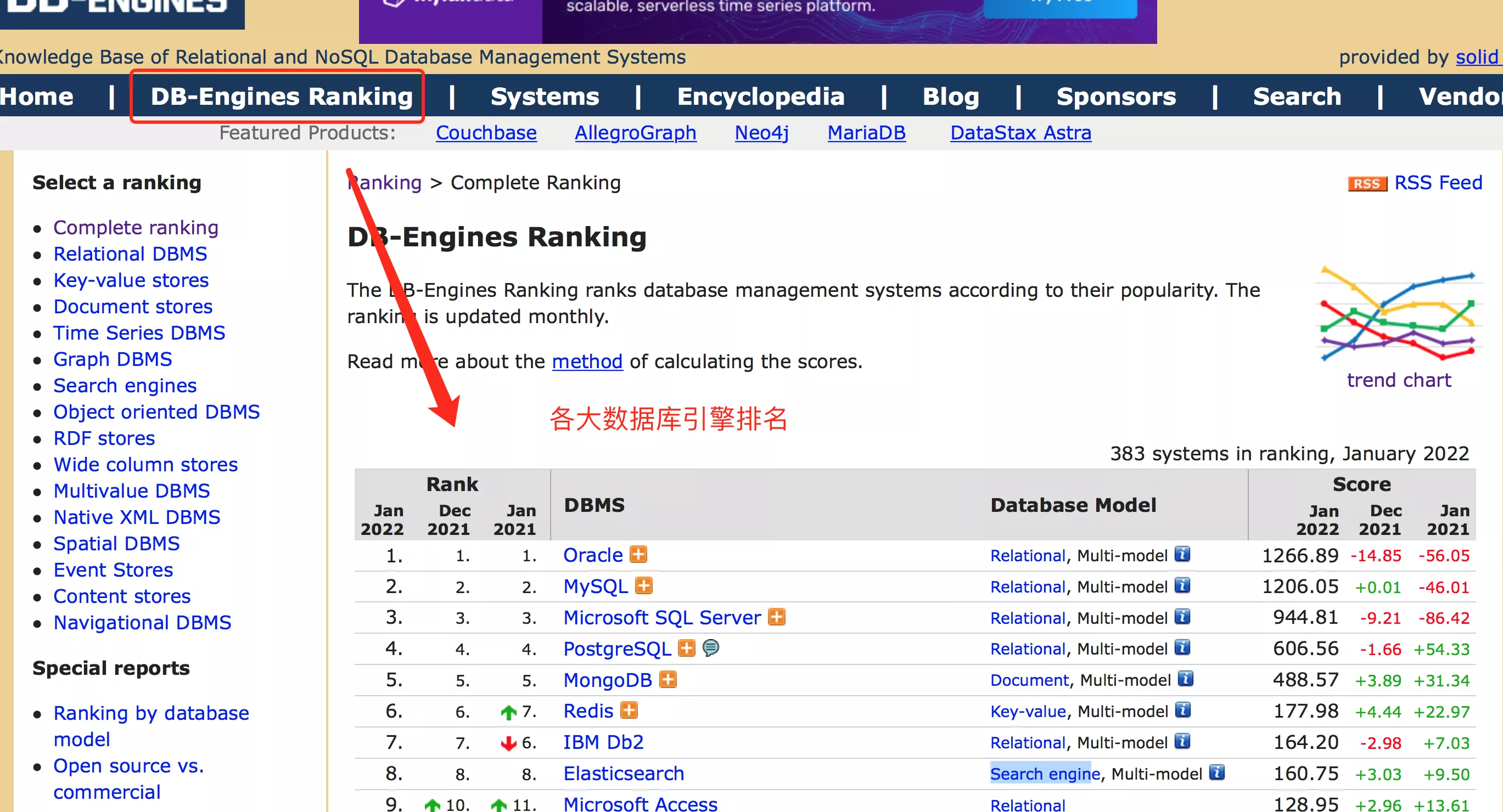
2. Mysql Redis Systems
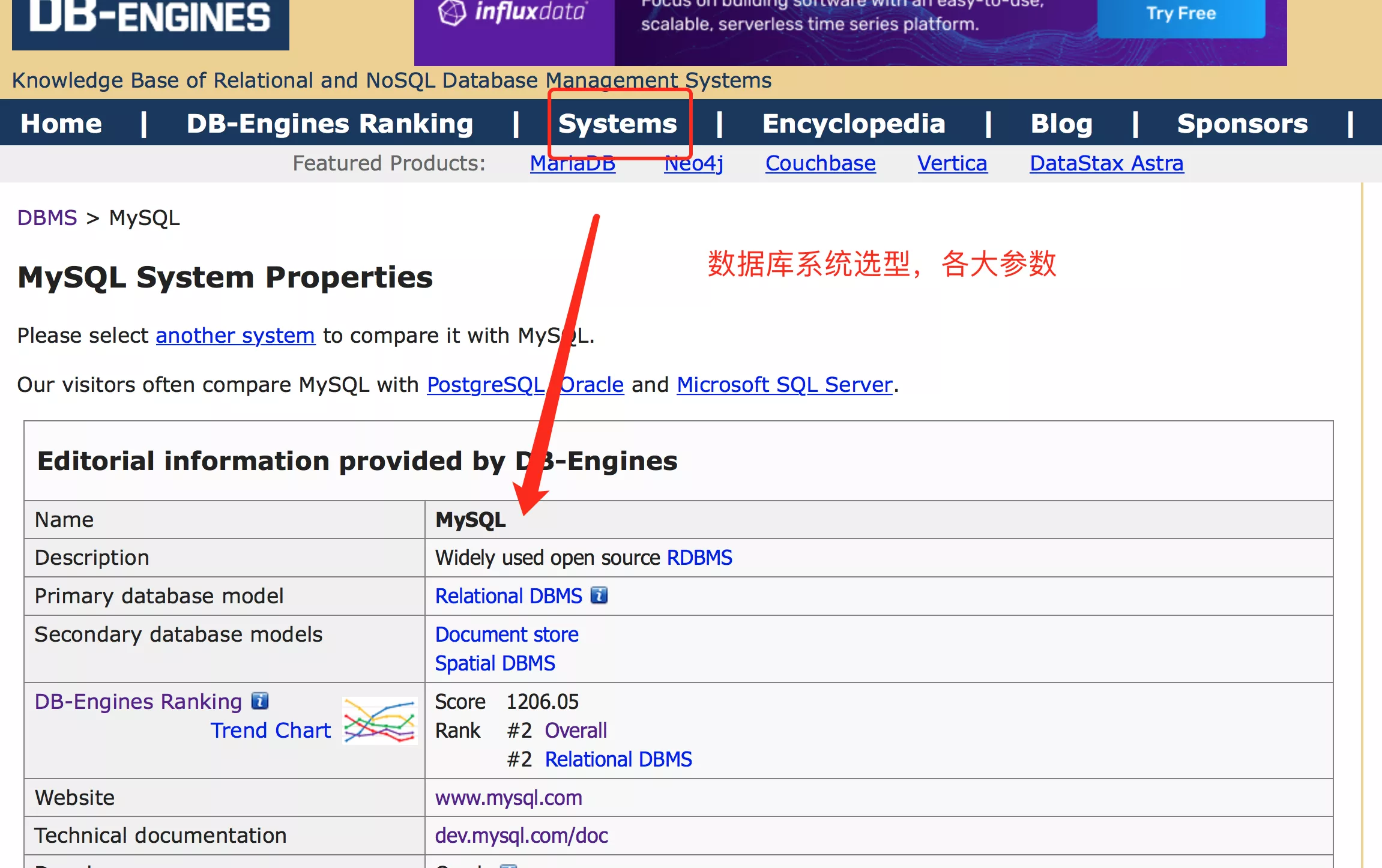
- 单机:10W ops
- socket IO:6、7w ops
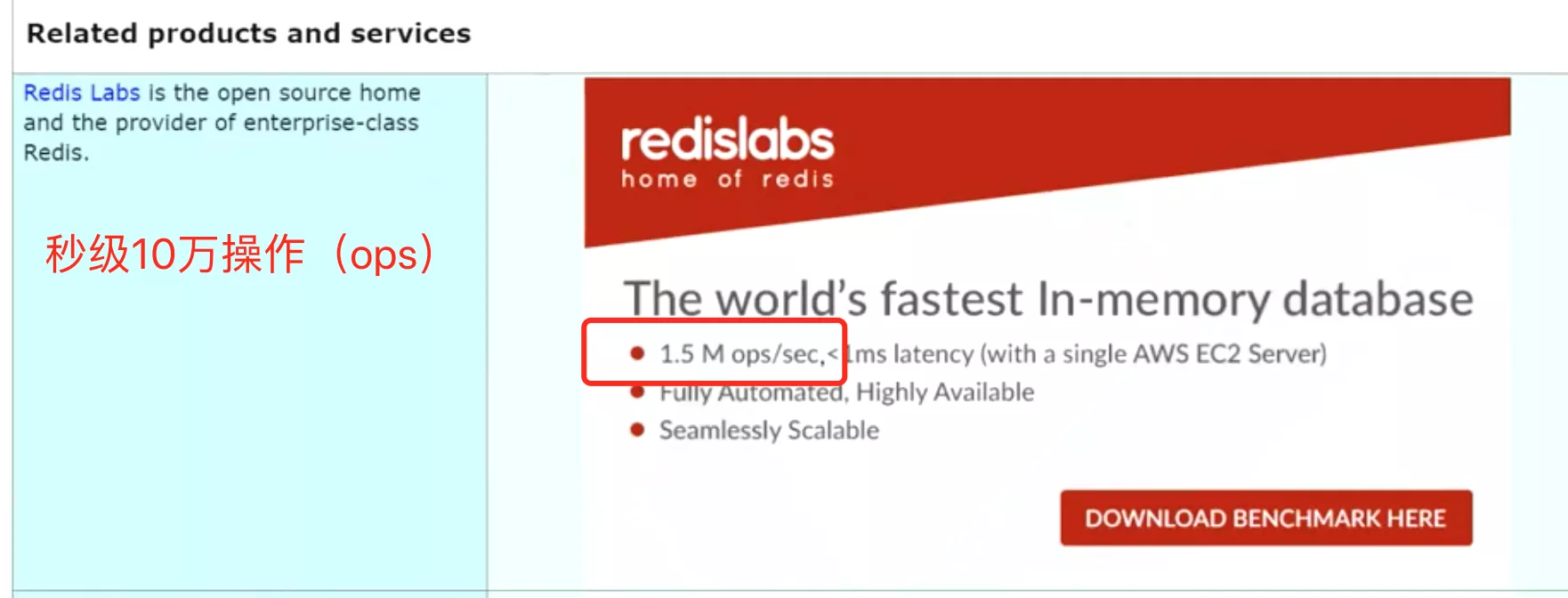
4. Redis
程序 = 算法 + 数据结构
- Redis是一个开源(BSD许可)的,内存中的数据结构存储系统,它可以用作数据库、缓存、消息中间件
- 支持多种类型的数据结构
- 字符串(string)
- 字符
- 数值
- bitmaps
- 散列(hash)
- 列表(list)
- 集合(set)
- 有序集合(sorted_set)
- 与范围查询, bitmaps, hyperloglogs 和 地理空间(geospatial) 索引半径查询
- 字符串(string)
- Redis内置了复制(replication)、LUA脚本(Lua_scripting)、LRU驱动事件(LRU_eviction)、事务(transactions)和不同级别的磁盘持久化(persistence),并通过Redis哨兵(Sentinel)和自动分区(Cluster)提供高可用性(high_availability)
1. 对比memcached
- memcached,value没有类型概念。client获取数据后要进行解析
- redis计算向数据移动,直接获取数据,不需要解析
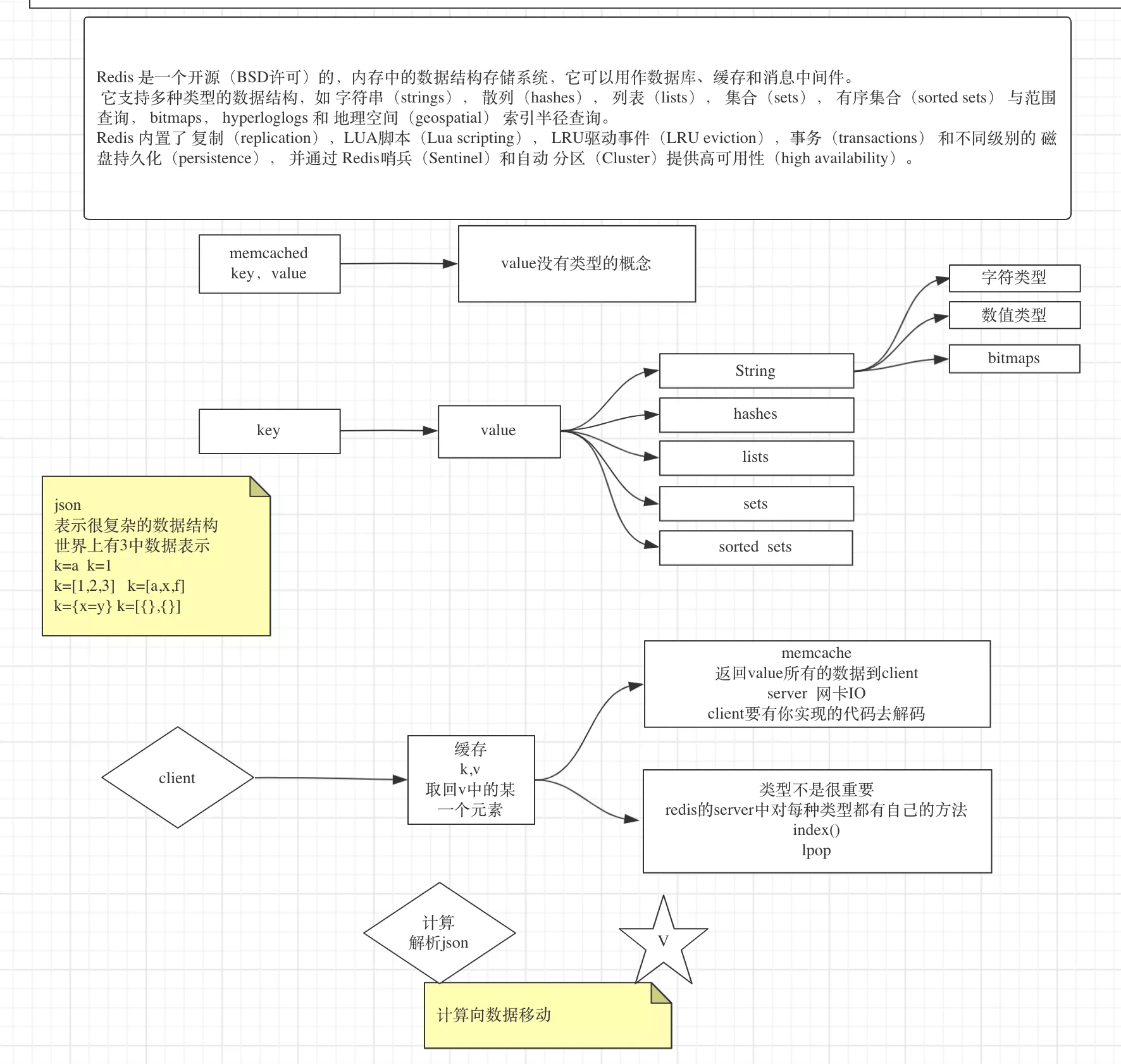
2. 安装Redis
3. 日志
- 在
redis.conf中,将logfile ""- logfile默认为空字符串。如果是空字符串,则使用标准输出;如果是空字符串且是后台运行,则日志被发送到
/dev/null - 在类Unix系统中,
/dev/null称为空设备或黑洞,是一个特殊的设备文件,它丢弃一切写入其中的数据,但报告写入操作成功
- logfile默认为空字符串。如果是空字符串,则使用标准输出;如果是空字符串且是后台运行,则日志被发送到
- 日志级别
- 在
redis.conf中配置。loglevel warning即可。日志级别从低到高分别为:debug, verbose, notice, warning
- 在
5. IO浅谈
同步,非阻塞的,多路复用
- 单进程,单线程,单实例。线程安全。顺序性,每个socket连接内命令顺序
- 并发很多请求,如何变得很快?
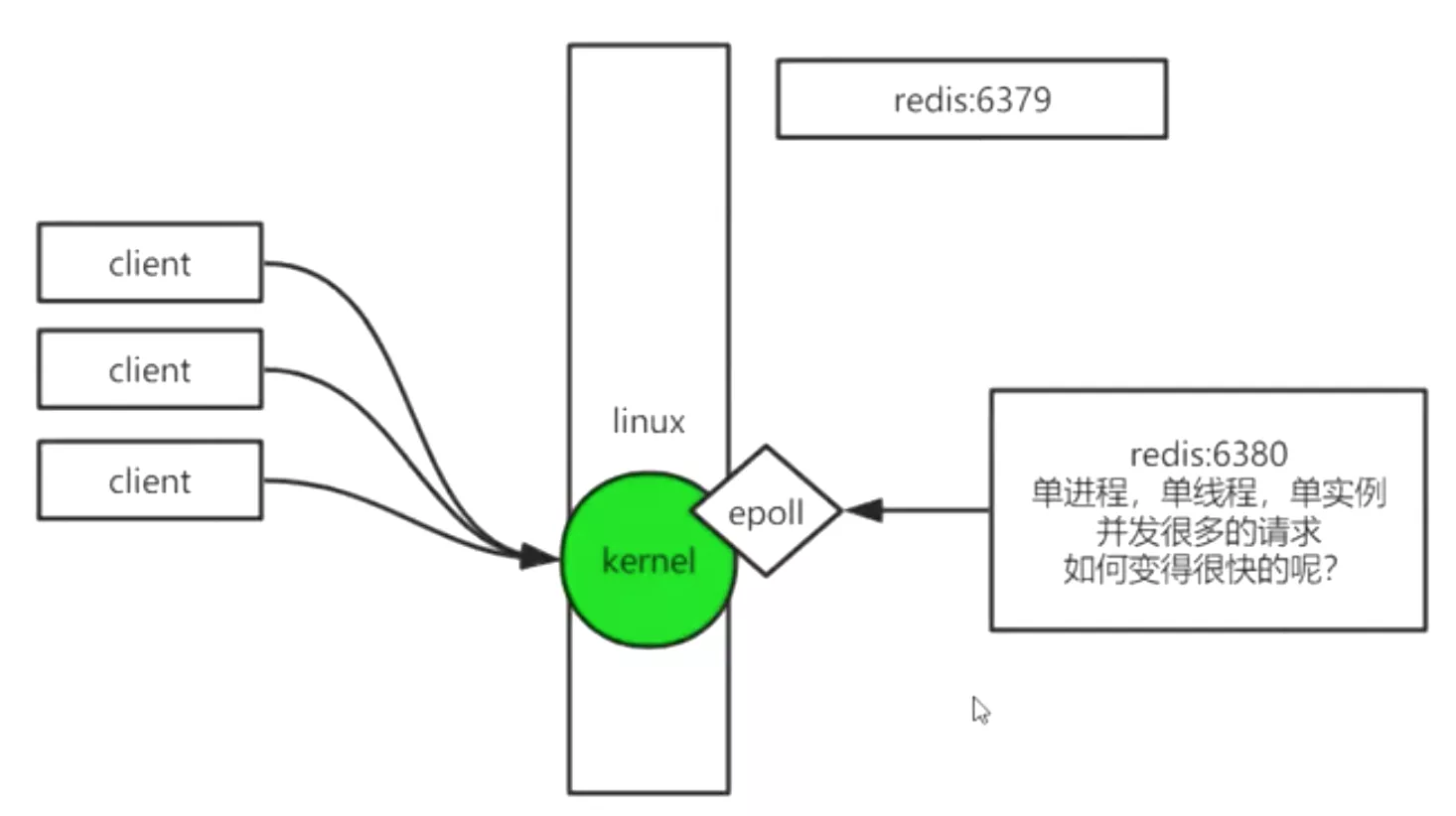
- nginx同步、非阻塞多路复用

1. BIO
Block IO。同步阻塞时期。service端对数据的处理,比client端快的太多了,阻塞时间很久
- 1个连接就是一个fd(文件描述符)
- JVM一个线程内存成本1MB。线程多了增加调度成本
- socket这个时期是blocking。
read()不会释放fd,阻塞状态
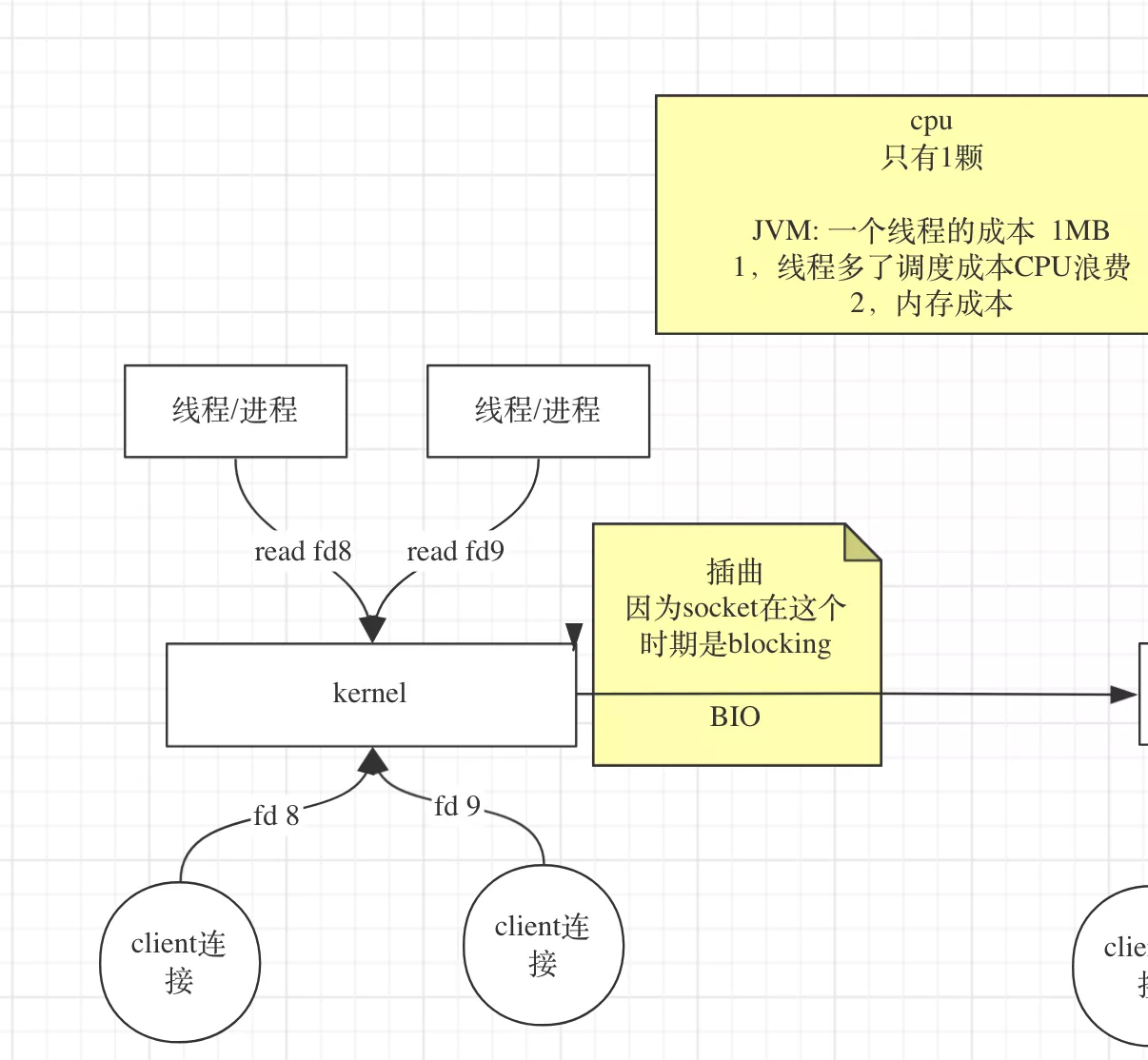
# linux下man帮助程序,man-pages帮助页
yum install man man-pages
# man帮助程序有8类文档。2类为系统调用,内核给程序暴露的调用方法
[root@hecs-168322 ~]# man ls
---------------------------------------------------------------------
LS(1) User Commands LS(1)
NAME
ls - list directory contents # man帮助程序有8类文档
SYNOPSIS
ls [OPTION]... [FILE]...
# ...
[root@hecs-168322 ~]# man 2 read
---------------------------------------------------------------------
READ(2q) Linux Programmer's Manual READ(2)
NAME
read - read from a file descriptor # linux一切皆文件,fd文件描述符
# ...
[root@hecs-168322 ~]# ps -ef | grep redis
root 32668 28127 0 10:58 pts/0 00:00:00 ./redis-server *:6379
root 32693 32673 0 10:59 pts/1 00:00:00 grep --color=auto redis
# 1. 任何进程都有其fd文件
[root@hecs-168322 ~]# cd /proc/32668/fd
[root@hecs-168322 fd]# ll
total 0
lrwx------ 1 root root 64 Apr 9 11:00 0 -> /dev/pts/0 # 0:标准输入
lrwx------ 1 root root 64 Apr 9 11:00 1 -> /dev/pts/0 # 1:标准输出
lrwx------ 1 root root 64 Apr 9 10:59 2 -> /dev/pts/0 # 2:错误输出
lr-x------ 1 root root 64 Apr 9 11:00 3 -> pipe:[189200]
l-wx------ 1 root root 64 Apr 9 11:00 4 -> pipe:[189200]
lrwx------ 1 root root 64 Apr 9 11:00 5 -> anon_inode:[eventpoll]
lrwx------ 1 root root 64 Apr 9 11:00 6 -> socket:[189203]
lrwx------ 1 root root 64 Apr 9 11:00 7 -> socket:[189204]
[root@hecs-168322 fd]# cd /proc/$$/fd
[root@hecs-168322 fd]# ll
total 0
lrwx------ 1 root root 64 Apr 9 10:59 0 -> /dev/pts/1
lrwx------ 1 root root 64 Apr 9 10:59 1 -> /dev/pts/1
lrwx------ 1 root root 64 Apr 9 10:59 2 -> /dev/pts/1
lrwx------ 1 root root 64 Apr 9 11:00 255 -> /dev/pts/1
2. NIO
- Nonblock IO。同步非阻塞时期
man 2 socket
---------------------------------------------------------------------
SOCKET(2) Linux Programmer's Manual SOCKET(2)
NAME
socket - create an endpoint for communication
DESCRIPTION
socket() creates an endpoint for communication and returns a descriptor.
Since Linux 2.6.27, the type argument serves a second purpose: in addition to specifying a socket type,
it may include the bitwise OR of any of the following values, to modify the behavior of socket():
# 1. 系统调用socket()方法,返回一个fd。type:SOCK_NONBLOCK => 非阻塞类型
SOCK_NONBLOCK Set the O_NONBLOCK file status flag on the new open file description. Using this flag
saves extra calls to fcntl(2) to achieve the same result.
SOCK_CLOEXEC Set the close-on-exec (FD_CLOEXEC) flag on the new file descriptor. See the description
of the O_CLOEXEC flag in open(2) for reasons why this may be useful.
- 非阻塞的,用一个线程/进程,循环(read fd)即可。轮询发生在用户空间。同步非阻塞时期
- 循环系统调用问题
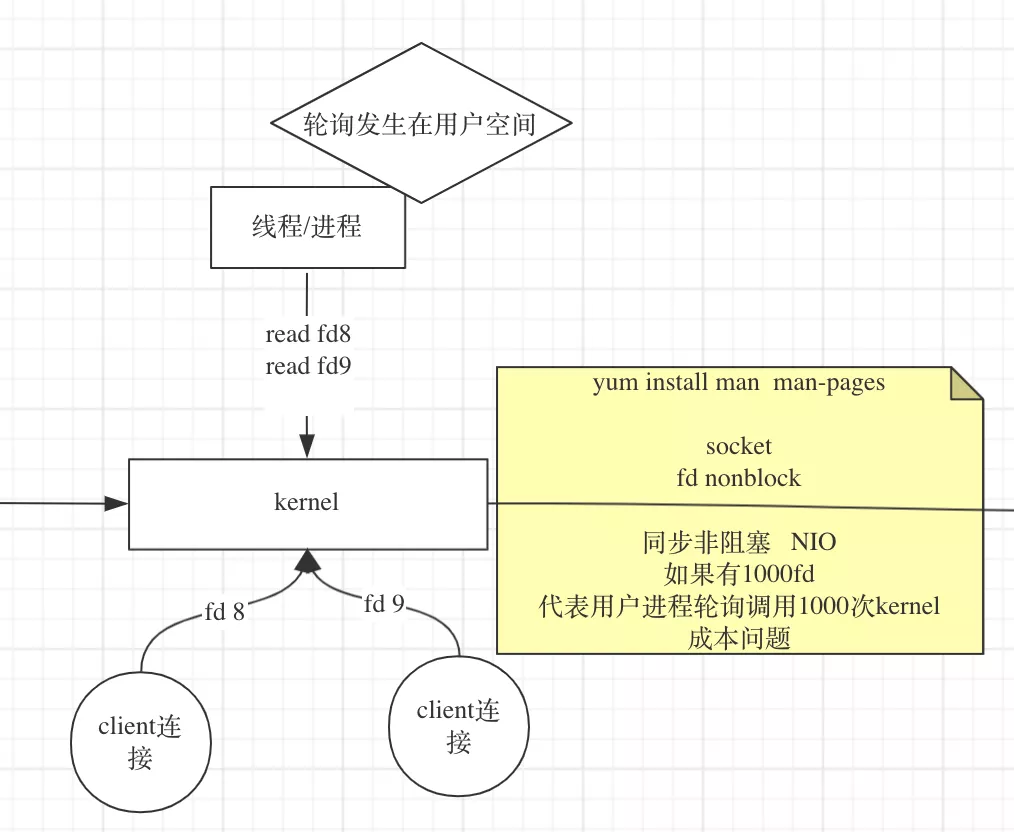
3. 多路复用select_NIO
- kernel发展,增加
select()系统调用。批量处理fd,将有数据的fd传递给read()系统调用 - 新问题:用户态、内核态fd,频繁copy
man 2 select
---------------------------------------------------------------------
SELECT(2) Linux Programmer's Manual SELECT(2)
NAME
select, pselect, FD_CLR, FD_ISSET, FD_SET, FD_ZERO - synchronous I/O multiplexing
SYNOPSIS
/* According to POSIX.1-2001 */
#include <sys/select.h>
/* According to earlier standards */
#include <sys/time.h>
#include <sys/types.h>
#include <unistd.h>
int select(int nfds, fd_set *readfds, fd_set *writefds,
fd_set *exceptfds, struct timeval *timeout);
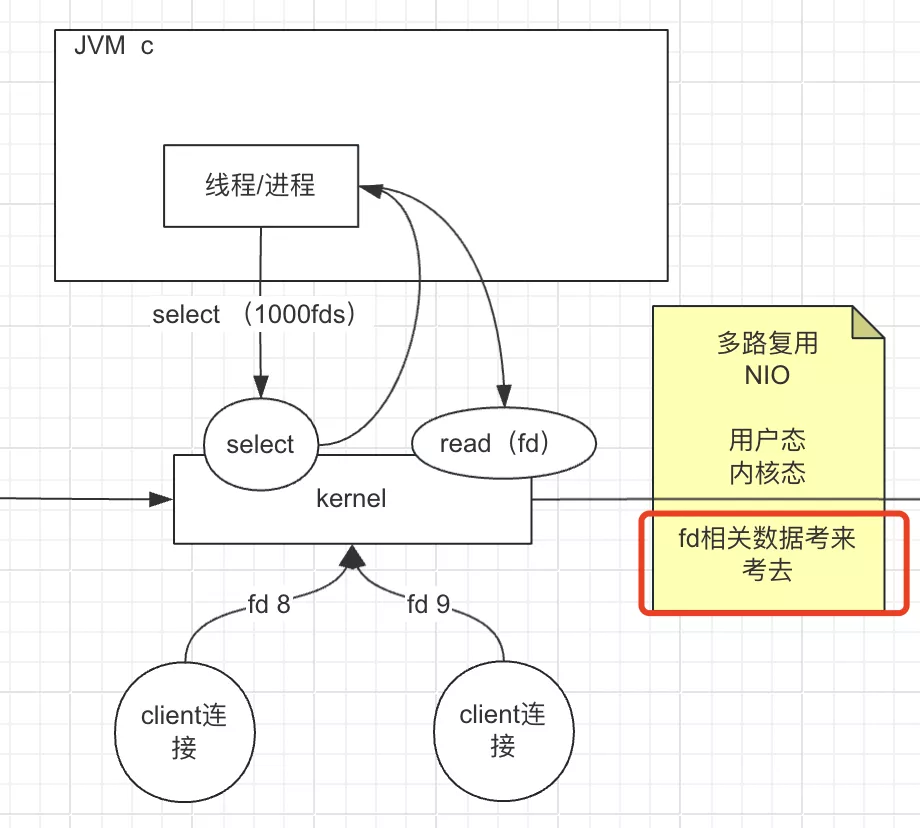
4. 多路复用epoll_NIO
epoll_create()创建epoll_fd。epoll准备共享空间mmap,即红黑树epoll_ctl()向红黑树中增、删fdepoll_wait()等待- kernel判断哪些可
read(),放到链表中
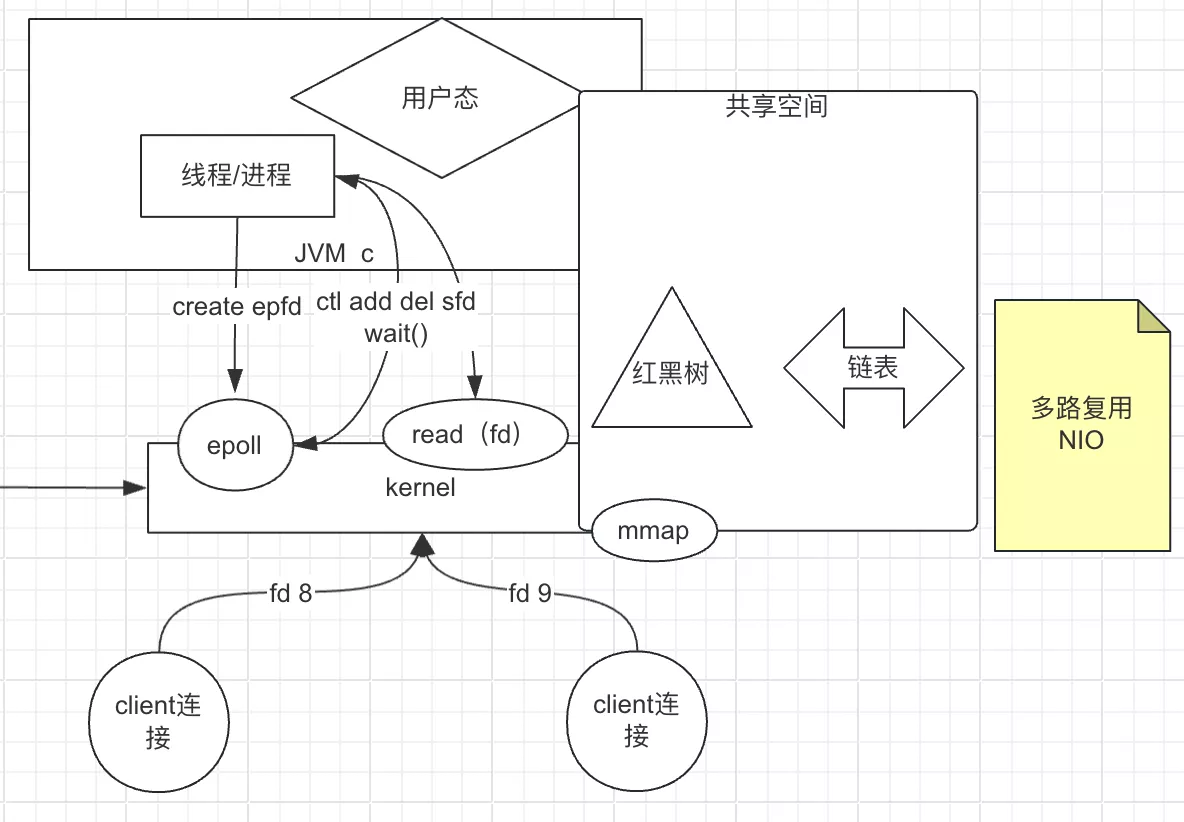
man epoll # 7类型杂项,包含3个系统调用
---------------------------------------------------------------------
EPOLL(7) Linux Programmer's Manual EPOLL(7)
NAME
epoll - I/O event notification facility
SYNOPSIS
#include <sys/epoll.h>
DESCRIPTION
The epoll API performs a similar task to poll(2): monitoring multiple file descriptors to see if
I/O is possible on any of them. The epoll API can be used either as an edge-triggered or a level-
triggered interface and scales well to large numbers of watched file descriptors. The following
system calls are provided to create and manage an epoll instance:
# 1. epoll_create(2)
* epoll_create(2) creates an epoll instance and returns a file descriptor referring to that
instance. (The more recent epoll_create1(2) extends the functionality of epoll_create(2).)
# 2. epoll_ctl(2)
* Interest in particular file descriptors is then registered via epoll_ctl(2). The set of file
descriptors currently registered on an epoll instance is sometimes called an epoll set.
# 3. epoll_wait(2)
* epoll_wait(2) waits for I/O events, blocking the calling thread if no events are currently
available.
1. 共享空间mmap
- 用户态、内核态共享的空间。减少频繁copy
man 2 mmap
---------------------------------------------------------------------
MMAP(2) Linux Programmer's Manual MMAP(2)
NAME
mmap, munmap - map or unmap files or devices into memory
6. 0_Copy
# sendFile()系统调用。输入、输出fd
man 2 sendfile
---------------------------------------------------------------------
SENDFILE(2) Linux Programmer's Manual SENDFILE(2)
NAME
sendfile - transfer data between file descriptors
SYNOPSIS
#include <sys/sendfile.h>
ssize_t sendfile(int out_fd, int in_fd, off_t *offset, size_t count);
- 网卡到kernel为socket_IO
file.txt到kernel为file_IOfile.txt先拷贝到buffer缓冲区,经过内核态内存,用户态内存sendfile()系统调用就不拷来拷去了,直接发出
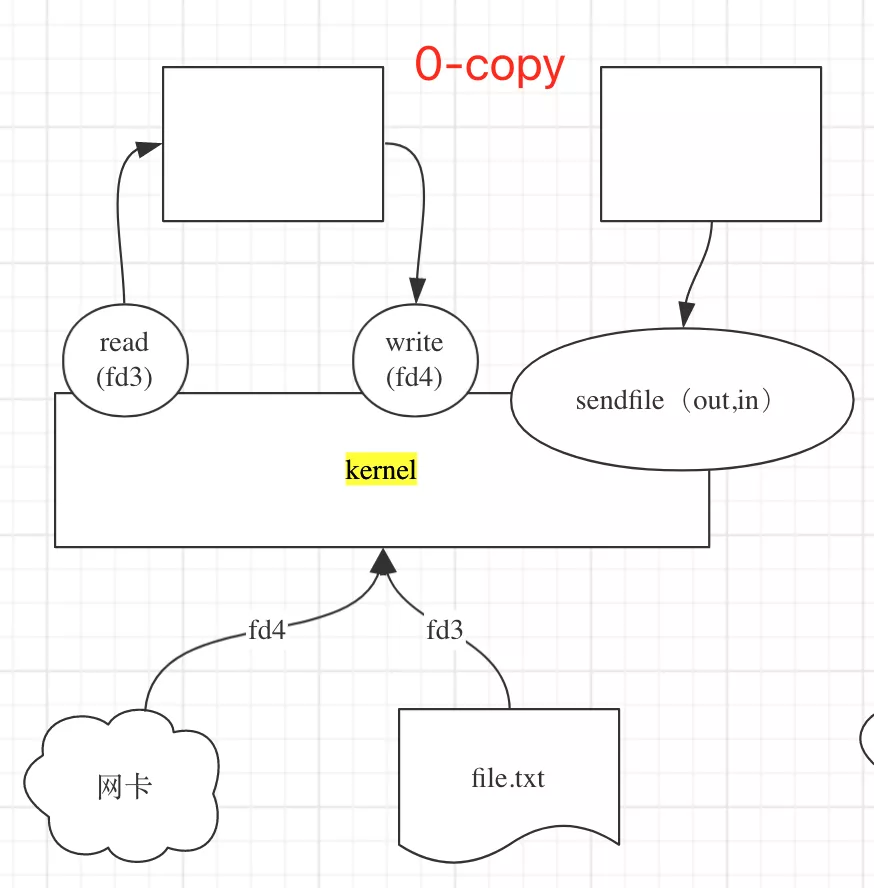
1. kafka基于0_Copy
- kafka是基于JVM,用户态应用
- mmap减少系统调用,减少数据copy
